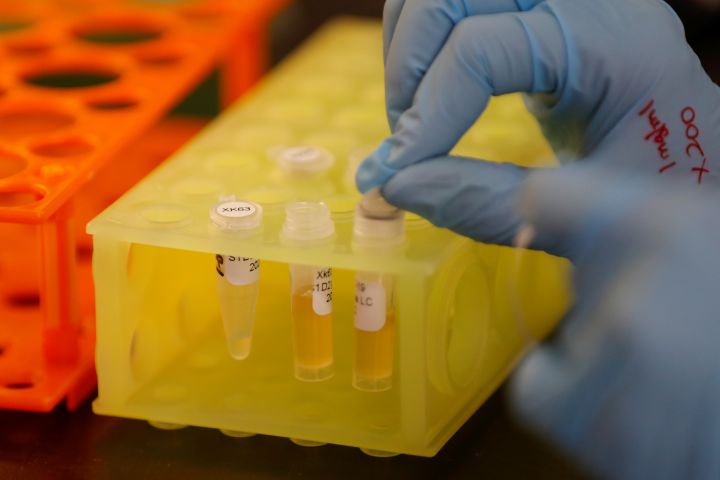The Saskatchewan government reported the province’s 23rd COVID-19-related death as it gave an update on new cases on Tuesday.

The deceased, who tested positive for the novel coronavirus, was in their 70s and from the central west zone, according to a press release.
Health officials said there were no new cases, with the overall total for the province at 1,601 since the first case was reported in March. They added that one previously counted case from Aug. 23 has been removed due to it being deemed a non-Saskatchewan resident.
According to a press release, 388 COVID-19 tests were performed in the province on Monday. This is the lowest Saskatchewan’s daily tests have been since June 9, when there were 282.
To date, over 132,330 tests have been carried out in the province.
All four current hospitalizations in the province are in Saskatoon — one is receiving inpatient care and three are in intensive care.

Get weekly health news
Eight more people have recovered, bringing total recoveries to 1,490.
There are currently 88 active cases in the province, health officials said. Active cases are total cases less recoveries and deaths.
Government officials said investigations completed thus far have found that 57 the current active cases are in “communal living settings.”
The Saskatchewan Health Authority announced on Tuesday that it’s easing the visitor limitation in Melfort, Tisdale and Nipawin and also at community long-term care facilities including Pineview Lodge in Nipawin, Parkland Place in Melfort and New Market Place in Tisdale.
The visitor limitations in Northeast hospitals were placed on July 29 because of COVID-19 cases in the rural municipality (RM) of Star City.
The decision was made by the local medical health officer, Dr. Mohammad Khan, as there have been no new positive cases in the RM 28 days after the last one was reported.

Questions about COVID-19? Here are some things you need to know:
Symptoms can include fever, cough and difficulty breathing — very similar to a cold or flu. Some people can develop a more severe illness. People most at risk of this include older adults and people with severe chronic medical conditions like heart, lung or kidney disease. If you develop symptoms, contact public health authorities.
To prevent the virus from spreading, experts recommend frequent handwashing and coughing into your sleeve. They also recommend minimizing contact with others, staying home as much as possible and maintaining a distance of two metres from other people if you go out. In situations where you can’t keep a safe distance from others, public health officials recommend the use of a non-medical face mask or covering to prevent spreading the respiratory droplets that can carry the virus. In some provinces and municipalities across the country, masks or face coverings are now mandatory in indoor public spaces.
For full COVID-19 coverage from Global News, click here.







Comments
Want to discuss? Please read our Commenting Policy first.